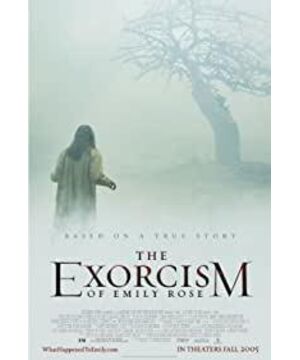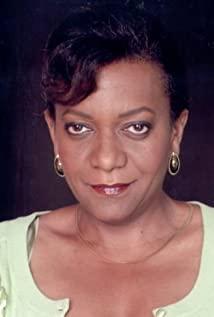After watching it for a while, I couldn't stand it anymore. I took off one of the headphones, then another, and then unplugged the headphones, replaced the speakers, and talked to my roommate to ease my nerves.
If it weren't for a little bit of hard work, I wouldn't watch it anymore. Because I don’t like horror movies very much, and from the first half of it, it seems to be a horror movie. Although nothing too bloody, nothing too violent, and nothing too disgusting; however, It seems to be a horror movie.
It can be said that that little persistence comes from the priest in the film. At first, he seems to be relatively innocent, not like a bad person; more importantly, he keeps saying that he wants to tell the story and tell the truth-but everything seems to be clear, what else is the truth? I am puzzled. I am interested in stories. So, finally finished.
(I have a little white question, because I don't understand the American criminal procedure: when can the defendant make a confession in court?)
It seems that this is not a horror film, but a religious film (spiritual?). ——I don’t know if there is such a classification, but I do think so. As someone said, this is actually a question of belief and choice.
What I care about is not the movie, but the story itself. Because issues involving film art need to be evaluated by professionals, everyone can have different opinions about the story itself, and you will not be laughed at if you make a mistake.
The young Emily is not beautiful, but still seems to be favored by demons and became the object of their possession. Mentioned, I think this is a bit abrupt,) showing a series of severely abnormal symptoms. After the medication did not work, she turned to religious therapy. ——Because Emily is soberly convinced that she has no mental problems. After getting approval, the priest wanted to use exorcism rituals for treatment. However, the devil's way was rampant, and the priest could hardly surrender it. The exorcism eventually failed, and Emily died soon in pain. The priest was accused of manslaughter, and a female lawyer who had successfully rescued the murderer from the guillotine came to defend him. They lost the lawsuit and the priest was found guilty; the dramatic ending was that the judge adopted the "recommendation" of the jury, and the priest was finally released.
On the surface, the focus of the court is whether Emily was possessed and whether the priest was manslaughter; however, I think what the film ultimately wants to tell us is a key issue, that is, the issue of choice. Emily's death was voluntary because she was a devout believer. She believes in the existence of God, and is willing to choose to continue suffering in order to prove the opposition between God and the devil and the existence of the kingdom of the soul, and let the world understand this matter through her sacrifice. After all, this is a question of faith.
I think in other respects, the film is considered a success. But on the question about Emily asking the Virgin, the film is not convincing. Namely: Why does Emily suffer? Must she show the miracle through her suffering? Why is it her? Why must there be those painful and tribulation processes? Although it can be said that the existence of the devil is to show the existence of God, these problems cannot be solved satisfactorily.
Perhaps, the film just wants to tell us one thing, that is: God did not abandon you, he is still there; in any case, you should not ignore the existence of God. However, in fact, for others, we have reason to be afraid that we are not saints (but it may be precisely at this point that Emily is a saint), is it possible that we will also suffer such a fate, and Finally died tragically? !
In short, through the movie, the information we can get intuitively is as follows:
1. Emily (her real name is Anneliese) is another saint;
2. There are demons;
3. There is a kingdom of God and soul.
Note, I think the second point is before the third point.
The above simple information does not mean that the film is boring and boring. In this story with a bit of horror, there is still something that touches me, that is:
1. Emily’s pious and kind choice (maybe this is why God chose her as the suffering saint, but also We will not suffer from such painful reasons, and this is the best answer to my previous question);
2. The priest's compassion, including his seclusion and refusal to appeal. He said that the matter between this man and god cannot be judged and resolved by the court. He doesn't care whether he is guilty or not, what he cares about is facts.
And as I always feel, the facts cannot be restored. Although people may be convinced of Emily's experience and the priest's experience, they also believe that those are unprovable. The ultimate tolerance of the jury may come from the priest’s explanation: Because belief by definition stands outside of proof. If you can prove it, you don't need to believe it. No need to believe it.)
Although this is a true story, what is presented before our eyes is, after all, only a story. We cannot even logically conclude that we must believe in God from the "truth" of the matter. In the true story, the defense lawyer once wrote that The other possibility is that demons exist as well as other discarnates. As much as I research and write and try to “logic” this out, I have no answers, only more questions. ( Another possibility is the existence of demons and the spirit world, but this is like my logical explanation, there is no answer, just more questions.) It seems that everything is just possible. Fortunately, after all, we saw a strong, great and pious girl, a kind, upright and loyal priest.
View more about The Exorcism of Emily Rose reviews











